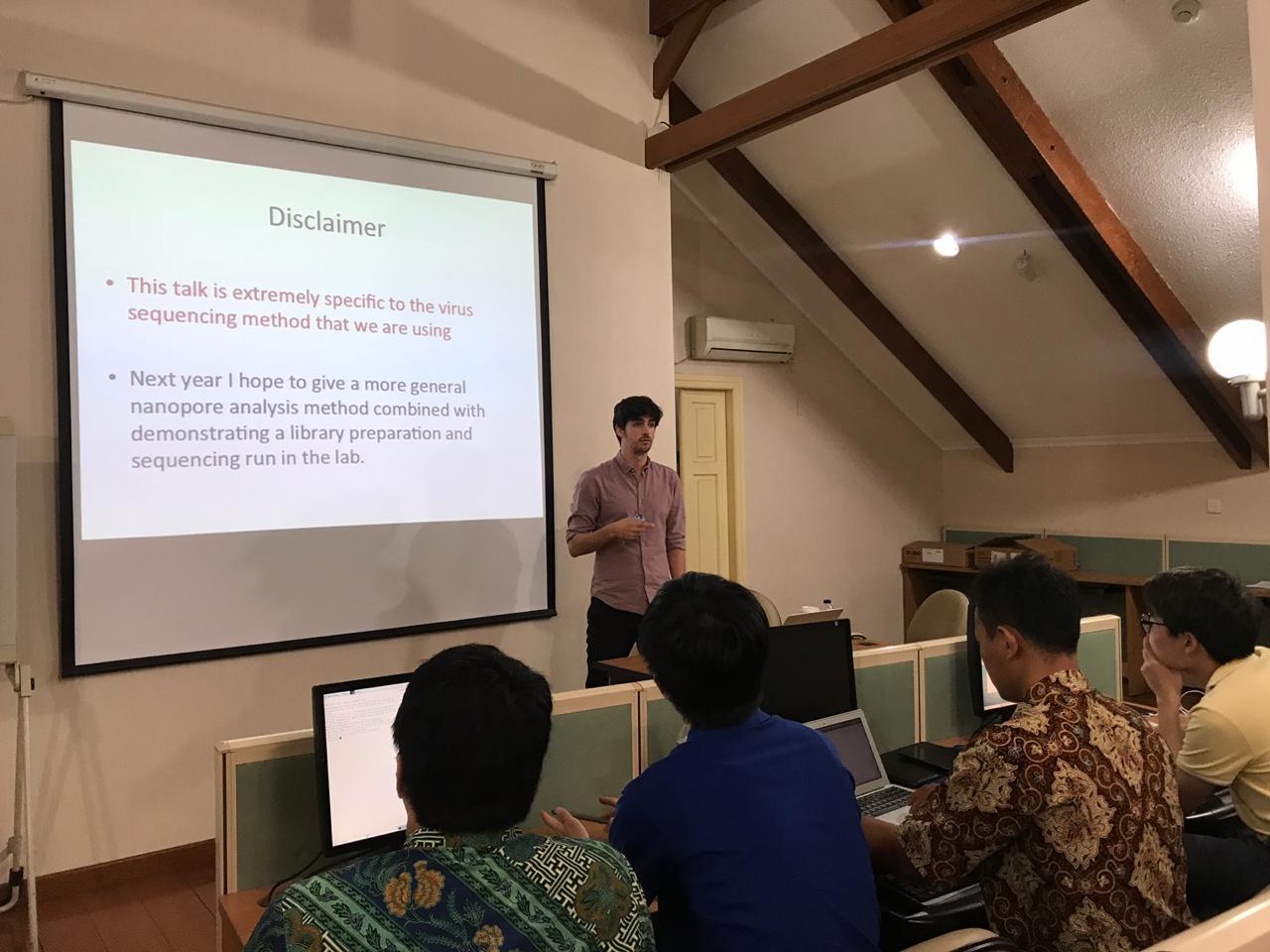
Submitted by Administrator on Thu, 11/10/2018 - 17:31
11 Oct 2018 - Dr Sam Stubbs (Department of Veterinary Medicine) recently travelled to Jakarta, as part of a capacity building project between the University of Cambridge and the Eijkman Institute, jointly funded by the MRC and DiPi.
Outbreaks of mosquito-borne viruses such as dengue and chikungunya are common across Indonesia. However, at present, a lack of infrastructure means that virus sequencing is not possible in the majority of Indonesian cities. Viral surveillance is instead reliant on samples being collected and transported back to the capital of Jakarta under costly and unpredictable storage conditions.
Dr Sam Stubbs (Department of Veterinary Medicine) recently travelled to Jakarta, as part of a capacity building project between the University of Cambridge and the Eijkman Institute, jointly funded by the MRC and DiPi. Sam gave a lecture to the Institute introducing the cutting-edge nanopore sequencing device which his team hopes to integrate into the recently announced National Genome Centre based at the Eijkman. Sam also led a one-day bioinformatics training course to introduce Eijkman researchers to the computational methods required to analyse the data generated by the device. Sam will be returning to Indonesia early next year to give hands-on training sessions in sequencing using the machine and an in-depth course on analysis of the resulting data.
The project is a collaboration between Prof Simon Frost and Dr Barbara Blacklaws’ team at the Department of Veterinary Medicine and the dengue virus and emerging virus research units, led by Dr Tedjo Sasmono and Dr Khin Myint, at the Eijkman Institute. It is planned that the Eijkman, in its role as the National Genome Centre, will hold training sessions in order to further disseminate this affordable and highly portable technology to centres across the country. The outcome of this project is expected to be an increased capacity for pathogen surveillance across Indonesia.

